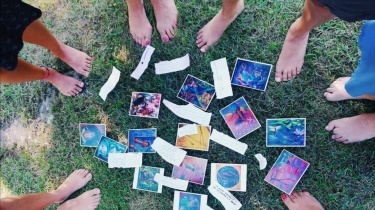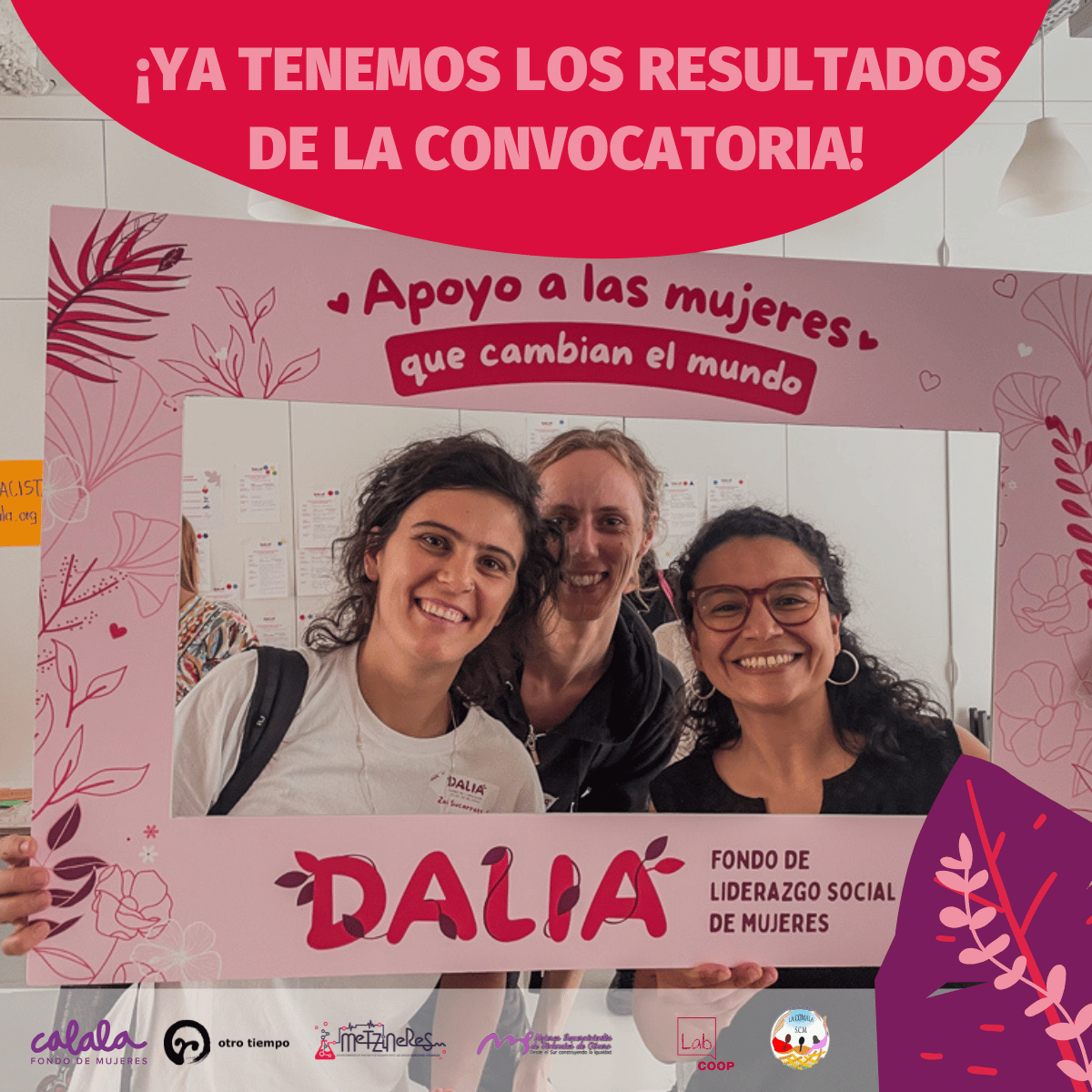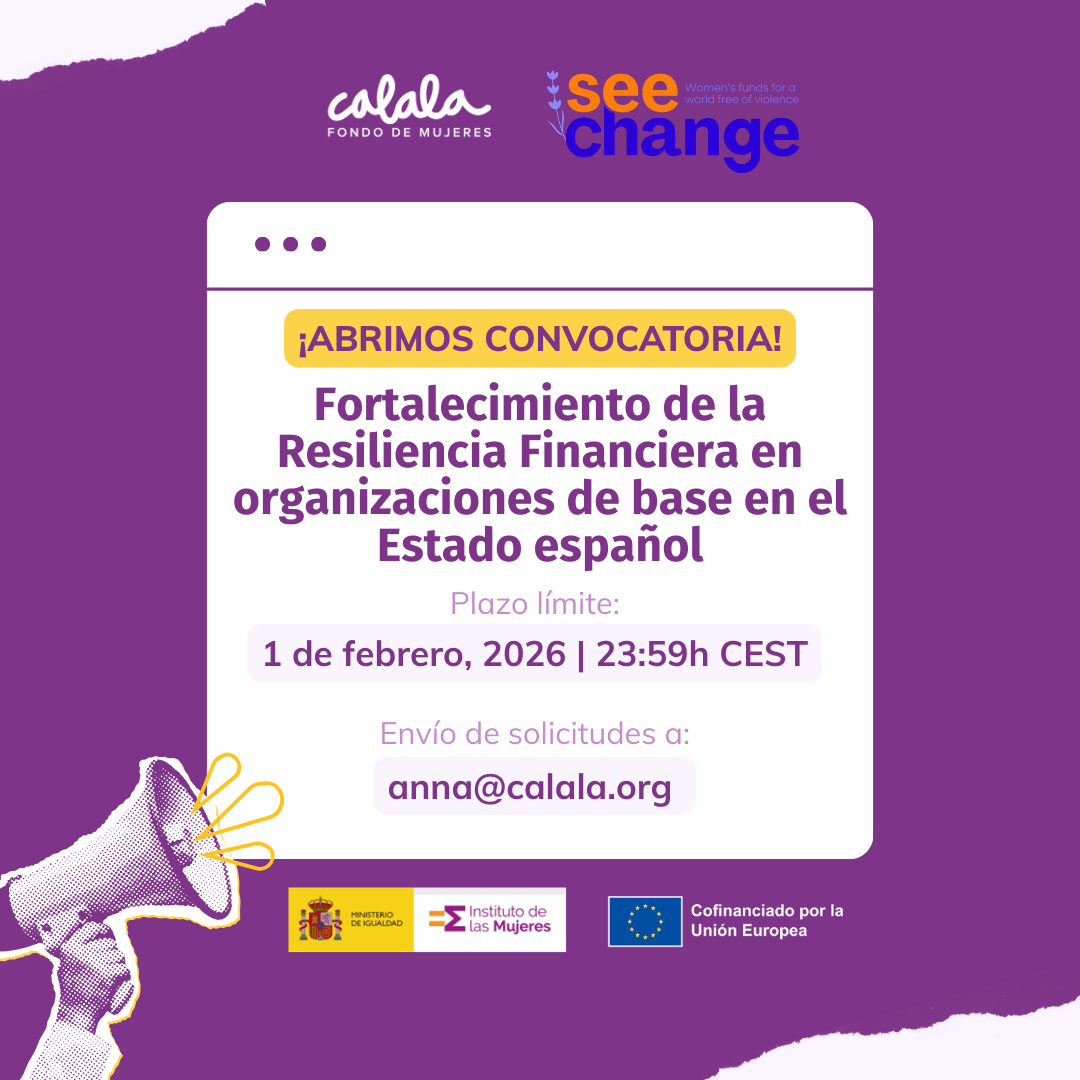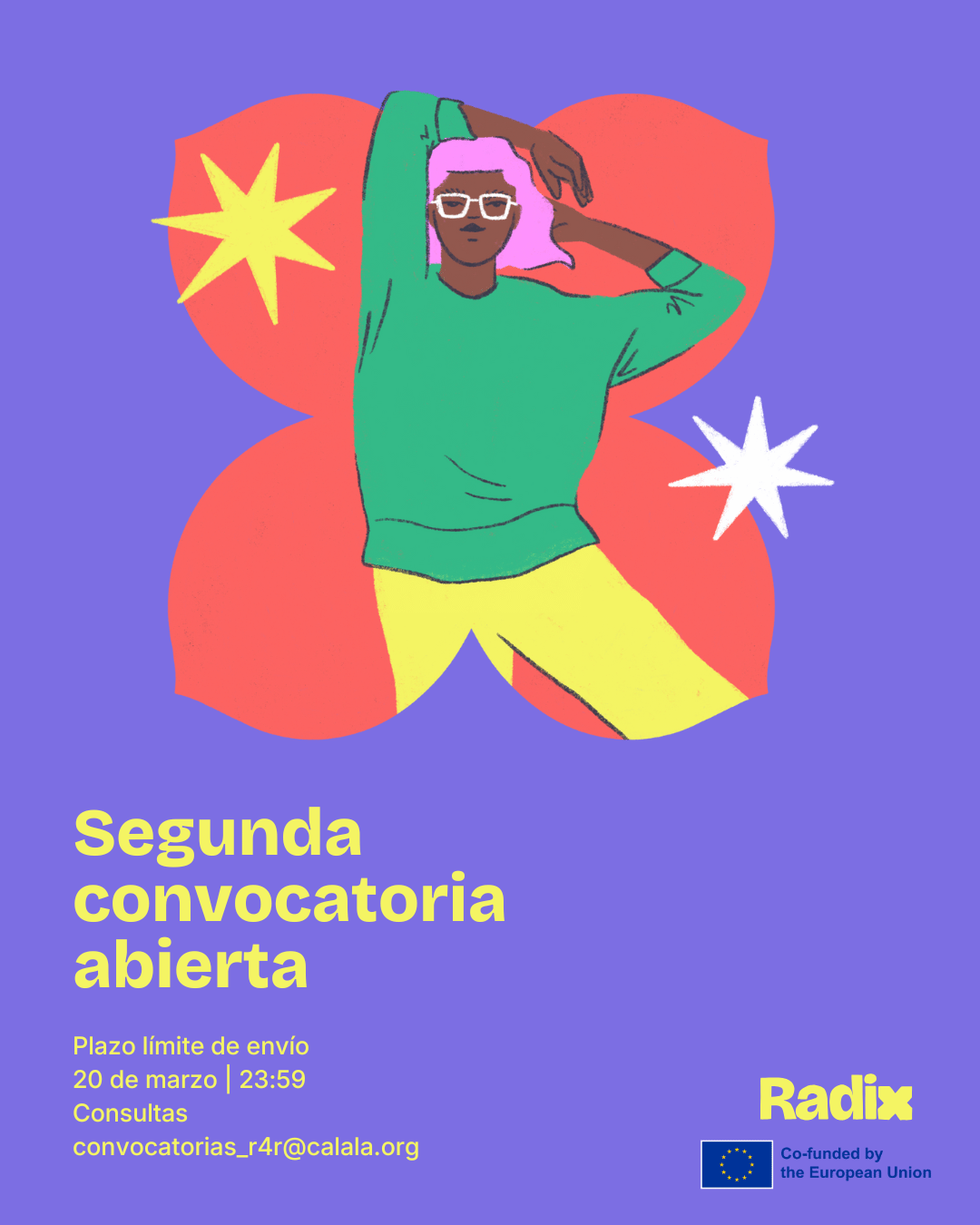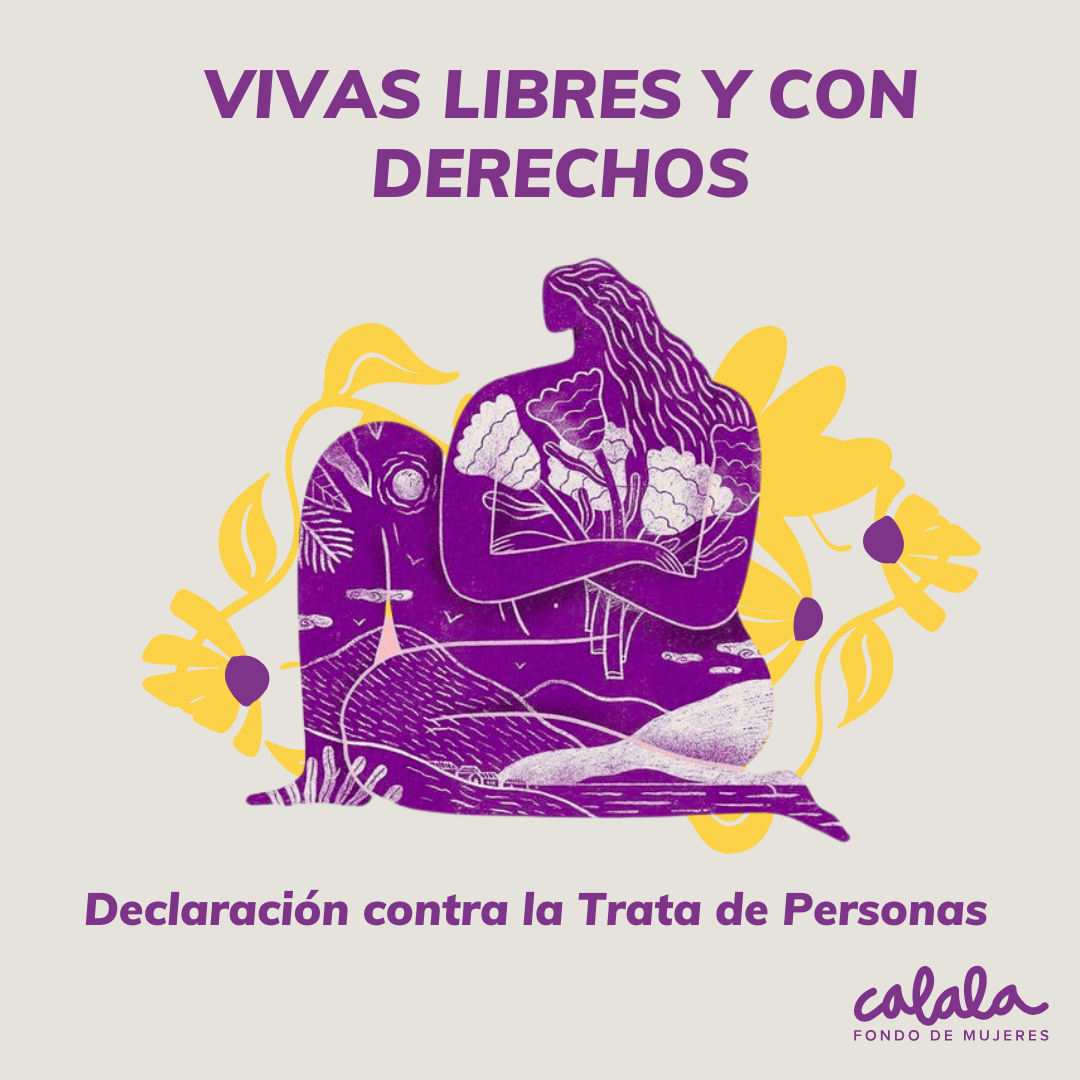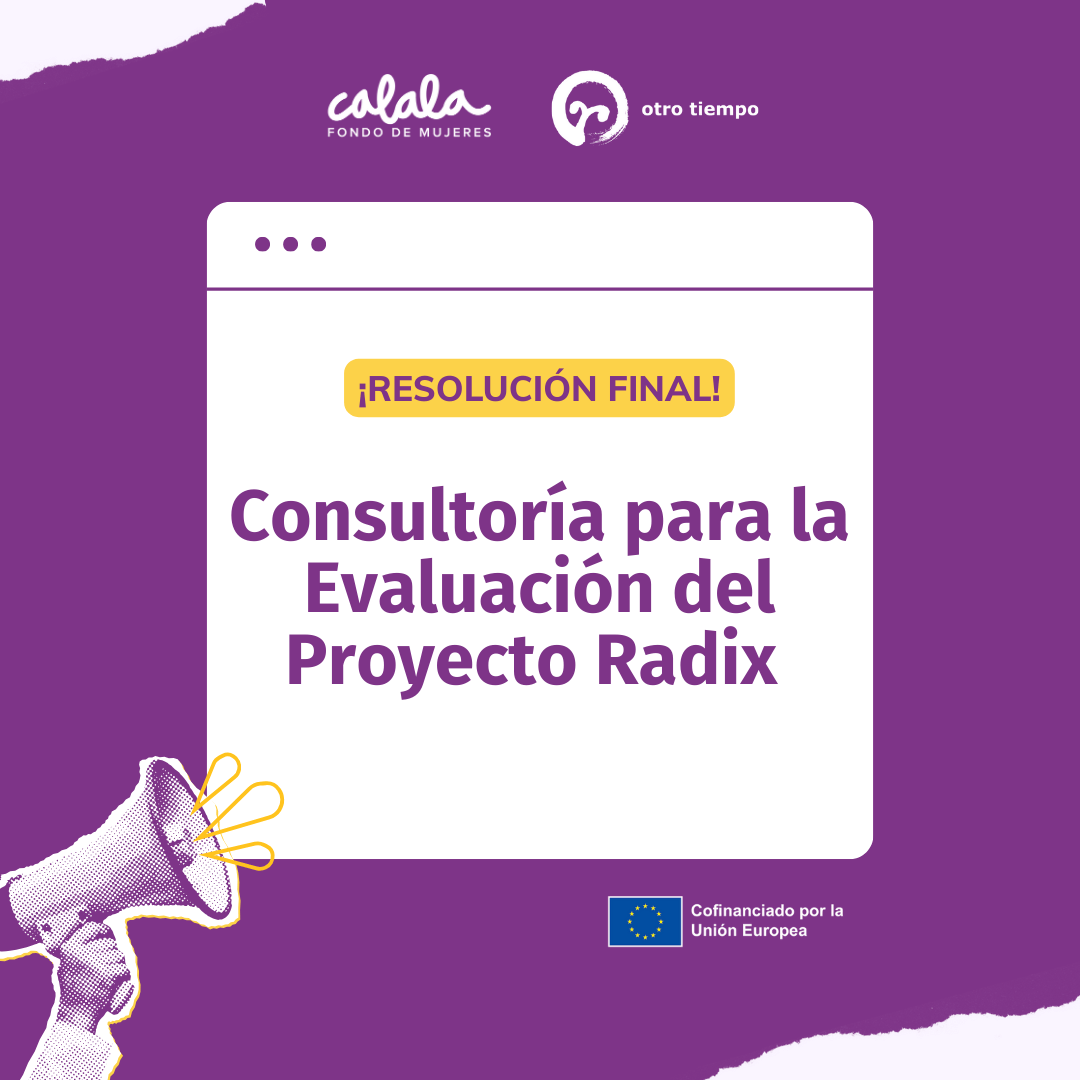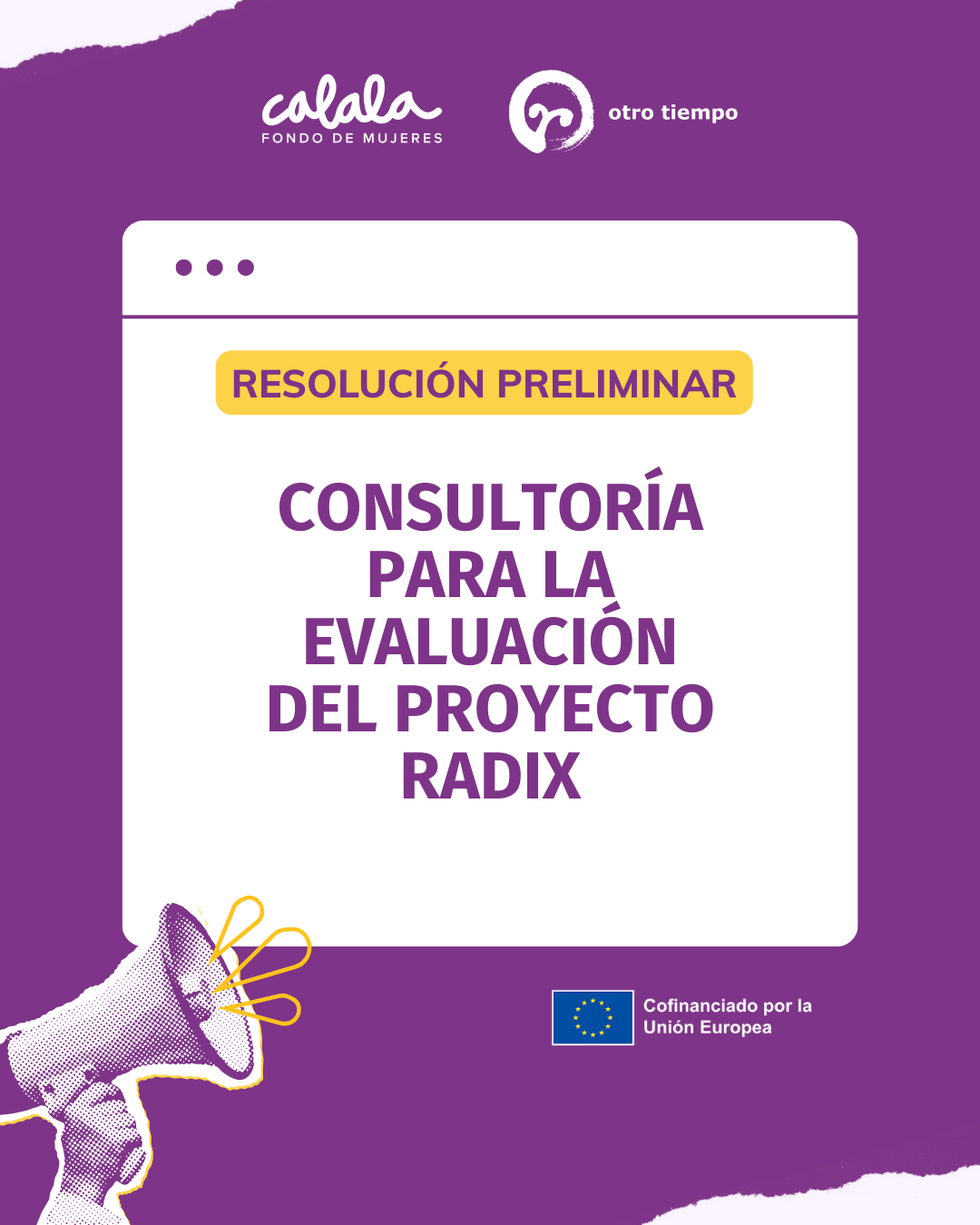We give money
At Calala our minds are always on how to raise money and other resources to strengthen the women's and feminist movement. To put it simply, as a women's fund our main task is to give money. We give donations to feminist women's collectives and networks in Central America and Spain. Money so that they can carry out their activities and advance towards their own goals. To this end, in 2019 we donated 678,915 euros to 61 organisations.
Where has this money gone? 66% of the total funds were given to groups in Central America and Mexico, 26% to migrant women's organisations in Spain and 8% to other feminist organisations in Spain. To work on which issues? 44% of the funds disbursed have gone to issues of comprehensive protection of women human rights defenders and promotion of safe activism. 36% have been directed to support sexual and reproductive rights, and the prevention of and attention to male violence. And 20% went to the defence of migrant women's rights, including the rights of domestic and care workers and the fight against racism, among others.
At Calala we are committed to supporting emerging organisations that find it more difficult to access external funding. The majority of the supported groups, 63%, are less than 10 years old. More than a third of the groups have been in existence for 3 years or less. In addition, a fairly high percentage of the groups we support, 42%, do not have legal status. For 44% of the groups, Calala is, or was at the time, the first entity that has made a financial donation to them.
- Matria Collective, a collective of young feminists that was created in 2014 in Tegucigalpa, has held workshops on feminism, operated an information line on sexual and reproductive health and carried out awareness-raising actions in the street, such as performances, interventions with stencils and rallies with the green scarf for the decriminalisation of abortion. Internally, they have developed training processes on safety and self-care. As a result, the collective has improved its protection strategies. They have also improved their articulation with other Latin American feminist organisations working on the same issues and have increased their visibility to international donors by obtaining new funding to advance their agenda.
- The Central American Parasol is an articulation created in 2015, a regional platform that brings together more than 50 sexual and reproductive rights organisations from seven countries in the region. With our support, they held their VI Meeting in Panama and made progress with the development of a regional strategic plan. They developed a communications campaign to raise awareness of the inequalities faced by Central America in terms of abortion. In addition, they held a workshop on advocacy and political advocacy for their members. Finally, the LSC participated in different regional and international advocacy spaces to position its agenda for the Population and Development Conference, the 49th Assembly of American States (OAS), the Nairobi Summit and the XIV Regional Conference on Women of ECLAC in Chile.
- The Zaragoza Association of Household and Care Workers are a group of domestic and care workers created in 2017. Our donation enabled them to organise themselves to participate in the II Congreso de Empelo de Hogar y Cuidados in Madrid. Subsequently, the group convened the 1st State Meeting of Domestic Workers in Zaragoza, which was later replicated in Valencia. They have also organised workshops and activities for their members to strengthen the group and talk about self-care, emotional management and sexuality, labour rights and health and gender, among others. They have strengthened their identity, their state networks, and have become a reference for women workers in the sector in Zaragoza.
- The Migration and Anti-Racism Commission 8M was created in 2018 to promote anti-racist feminism within the coordination spaces of the Spanish feminist movement that are organised on 8 March. Some of the issues they denounce are the Law on Foreigners and the Detention Centres for Foreigners (CIE). With the support of Calala, they were able, among other things, to travel to participate in a national coordination meeting to organise the 8th March in Valencia, which was key to the incorporation of their demands into the common discourse. During this time they have been able to organise themselves better and incorporate new migrant and racialised women into the Commission. They feel that their proposals have gained visibility in the movement, but not all their concerns are addressed and there is still a need to continue to deepen an anti-racist perspective on 8 March.
We contribute to capacity building
As a women's fund, another of our main activities is to train and support women's organisations to strengthen their capacities. Sometimes it is simply a phone conversation to share concerns, sometimes we connect the groups we support with other donors. We also provide capacity-building grants to groups and resources for training processes.
The groups we support feel that they have increased their capacities over the past year. 7.5 out of 10 on average. After this time, some groups have a better internal coordination, more dynamic and constant than before. Several have grown, incorporating new members, including young women. Others explain that the links between members and the sense of belonging have been strengthened. They also report that their members are more empowered through internal training spaces. Some collectives describe how resources have allowed them to have spaces to meet and carry out their activities, as well as computer equipment to help them carry out their work.
Several groups have a greater presence in the media or more followers on their social networks. Some have gained recognition and are invited to debates or talks, receive more consultations or feel that they have become a reference in the issues they work on. In addition, in some cases they mentioned that they had new opportunities for dialogue and collaboration with public institutions. This strengthening is the result of each organisation's own process, although actions that we carry out directly also contribute to it.
For example, in 2019, we awarded several capacity-building grants to grassroots collectives in Central America. An indigenous women's collective in Guatemala was able to learn about project management using a popular education methodology. A network of young feminists in Honduras received training on bodies and sexualities. And a lesbian youth organisation developed a feminist self-care and integral protection manual. As they themselves tell us: “We have institutionalised self-care processes because we believe that advocacy and community work need a space for reflection, care and harmony with our bodies. In 2019, we will implement our first individual and collective self-care processes.
And we support the articulation of the feminist movements
The third pillar underpinning our work is our commitment to articulation and networking in the feminist and women's movements we support. This articulation takes place at different levels, at the local or state level within the same territories in which they act. But also at the regional or international level between organisations working on the same issue and collectives that draw common horizons from different struggles. The groups that we support claim to have increased their participation in articulation and advocacy spaces in the last year by 7.4 out of 10.
Some of the organisations we support are networks in themselves, such as the Mesoamerican Women Human Rights Defenders Initiative, which is articulated regionally and internationally. In their own words: “Strengthening alliances between networks and organisations of women human rights defenders, women and organisations that promote human rights at all levels is very important to advance the comprehensive protection of women human rights defenders from a feminist perspective”.
Others are not networks, but have a strong commitment to networking, as in the case of domestic workers“ collectives: "We have participated in workshops with other domestic workers' collectives in other territories. It was very important for us to host the first State Meeting of Domestic Workers. To close 2019, we are participating in the II Congress of Domestic and Care Workers”.
To contribute to this articulation work, in 2019 we will award a total of 7 travel grants. For example, with these funds, a group of young Salvadorian women travelled to Argentina to participate in the 34th Plurinational Meeting of Women of La Plata, two members of a Garifuna organisation from Honduras travelled to Europe to strengthen their alliances, a group of women lawyers from different territories in Spain attended the trial of the Coño Insumiso members as observers, and a cooperative that works with women who experience gender violence was able to travel to Geneva to meet with the United Nations Special Rapporteur on violence against women.
We solve your doubts
Yes, we are a women's fund. What makes us unique in Spain is that we are exclusively dedicated to strengthening the women's and feminist movement. As we have just mentioned, we use a three-pronged strategy to do this: providing donations, strengthening capacities and focusing on articulation.
Yes, we consider ourselves part of the feminist movement. All members of Calala are feminists and most of us are active in different spaces of participation in our neighbourhoods and cities. We bring to the movement our expertise in resource mobilisation.
Yes, for all this we need money. It would not be possible without the support of our donors. In 2019, 81% of the funds we provided came from public institutions of the Spanish State and the European Union and 16% from private institutional donors. If you are curious, you can find out the details in our donations report. Only 3% of the funds dedicated to donations come from our own funds. One of our main challenges is to increase our individual donor base.
If you also want to be part of our community and give more strength to the women's and feminist movements
START DONATING NOW!
